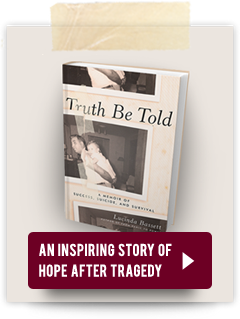Truth Be Told With Lucinda Bassett- RE-ACTIVE VS. PRO-ACTIVE
In my work, I’ve noticed that people tend to be re-active in life rather than pro-active as a result of their own Core Story predetermining their responses. In other words, you spontaneously (often impulsively) react to life in your usual, predetermined ways. For example, if you typically react with anger, you will get angry. It is the same with worry, anxiety, and blame. You just don’t think it through, you don’t have a plan, and you end up frustrated, angry, anxious, depressed, out of control, and victimized.
The difference is easy to discern. When you are re-active, you are being negative and impulsive and you get the same negative results you’ve always gotten. When you operate from a pro-active attitude, you are being positive, effective, and moving toward change, growth, and a healthier future. A pro-active response can be learned; it is something you can choose. Responding pro-actively is one of the most prominent traits of successful, happy people.
Here is an example of re-active vs. pro-active thinking:
Imagine you have a deadline for a sales report that is keeping you up all night.
- The re-active response to this anxiety is to tell yourself, “I can’t sleep. I’ll never make that deadline. If I don’t, they’ll fire me. If I do and it isn’t good enough, they’ll still fire me. Either way, I’m in big trouble.”
- The pro-active response is, “The deadline I’m facing is too short. I need to speak to my boss and let him know that I need a little extra time to make the report really good. I am valuable and I do a great job here. My boss will be understanding and give me the extra time that I need.”
Chat with me




No Comments Yet
You can be the first to comment!